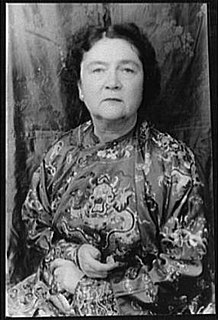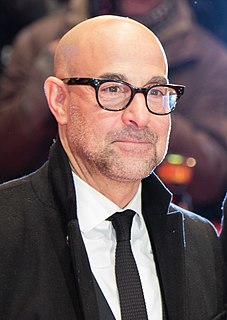A Quote by Oscar Wilde
A man who marries without knowing Bunbury has a very tedious time of it.
Related Quotes
This ghastly state of things is what you call Bunburying, I suppose? Algernon. Yes, and a perfectly wonderful Bunbury it is. The most wonderful Bunbury I have ever had in my life. Jack. Well, you've no right whatsoever to Bunbury here. Algernon. That is absurd. One has a right to Bunbury anywhere one chooses. Every serious Bunburyist knows that.
Bunbury? Oh, he was quite exploded. Exploded! Was he the victim of a revolutionary outrage? I was not aware that Mr. Bunbury was interested in social legislation. If so, he is well punished for his morbidity. My dear Aunt Augusta, I mean he was found out! The doctors found out that Bunbury could not , that is what I mean—so Bunbury died. He seems to have had great confidence in the opinion of his physicians.
The reclusive man who marries the gregarious woman, the timid woman who marries the courageous man, the idealist who marries the realist we can all see these unions: the marriages in which tenderness meets loyalty, where generosity sweetens moroseness, where a sense of beauty eases some aridity of the spirit, are not so easy for outsiders to recognize; the parties themselves may not be fully aware of such elements in a good match.
We are born one time only, we can never start a new life equipped with the experience we've gained from the previous one. We leave childhood without knowing what youth is, we marry without knowing what it is to be married, and even when we enter old age, we don't know what it is we're heading for: the old are innocent children innocent of thier old age. In that sense, man's world is the planet of inexperience.
History is for human self-knowledge. Knowing yourself means knowing, first, what it is to be a person; secondly, knowing what it is to be the kind of person you are; and thirdly, knowing what it is to be the person you are and nobody else is. Knowing yourself means knowing what you can do; and since nobody knows what they can do until they try, the only clue to what man can do is what man has done. The value of history, then, is that it teaches us what man has done and thus what man is.
When I started acting, I had a really strong discipline of knowing that you had to be on time, knowing that you had to work 12 to 16 hours a day, knowing you had to be prepared, knowing you had to be ready, and it's very interesting because if you're an artist and you're creating, you can work very, very long hours but as you're putting out that love of creation, it's almost like you're charged by it, you're charged by the process of it.
Of true knowledge at any time, a good part is merely convenient, necessary indeed to the worker, but not to an understanding of his subject: One can judge a building without knowing where to buy the bricks; one can understand a violin sonata without knowing how to score for the instrument. The work may in fact be better understood without a knowledge of the details of its manufacture, of attention to these tends to distract from meaning and effect.
The terrible tabulation of the French statists brings every piece of whim and humor to be reducible also to exact numerical ratios. If one man in twenty thousand, or in thirty thousand, eats shoes, or marries his grandmother, then, in every twenty thousand, or thirty thousand, is found one man who eats shoes, or marries his grandmother.
3D movie is tedious, its tedious for everybody, it's hard for the crew, it's hard for the actors. It adds more time. It's more technically complicated, so that just adds more time and takes a little more time away from he acting and that's kind of frustrating but to say "I'll never do 3D again" that doesn't make any sense.



































